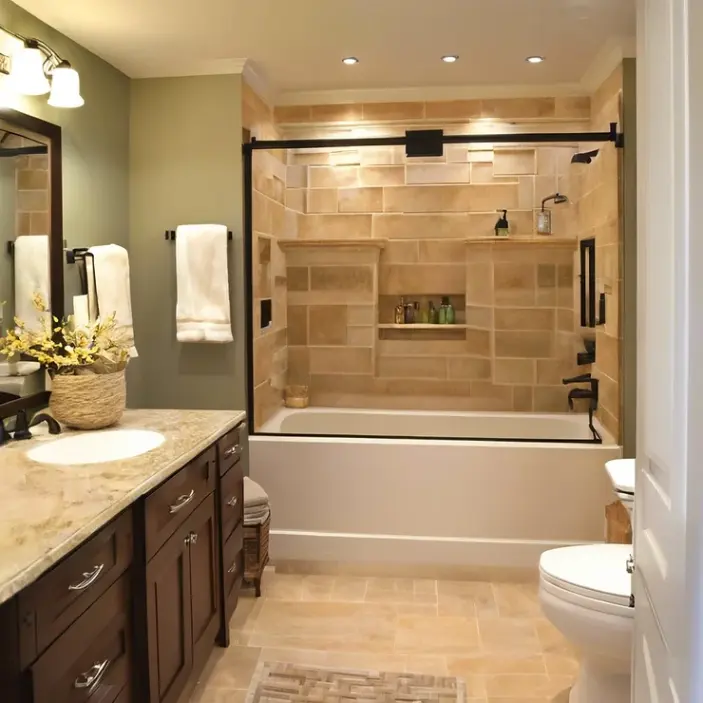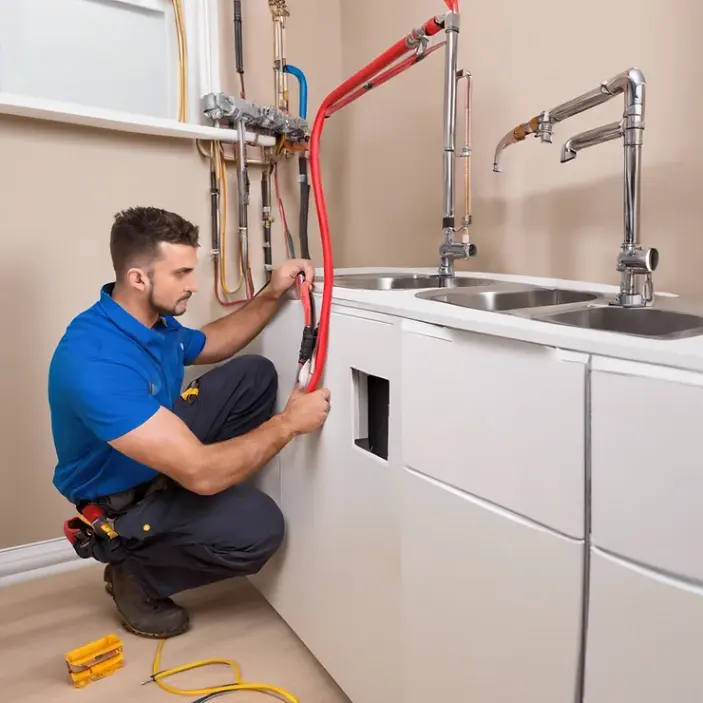Remodeling your bathroom is an exciting way to enhance your home’s comfort and value. To make daily life better homeowners design the bathroom with home. However, before you start ripping out tiles or swapping fixtures, it’s important to understand the permit requirements for your renovation project. So, do you need a permit to remodel your bathroom? So, let’s explore this topic do I need a permit to remodel my bathroom, and why do I need to permit to remodel my bathroom?
My bathroom remodel experience
Contents
Let me show you my personal experience that happened to me, which is about the bathroom remodeling journey. During the coronavirus, 3 years ago, We wanted to move into my new house with my family, so I visited the house before moving there. So, I told my father that everything in the home was better but we had to remodel my bathroom because it was small and not fulfilling our desires. Then my father agreed with that and got permission from the Land Development Authority (LDA). After getting permission to our bathroom from its small size to make it vast.

Personal suggestion: So, the thing is that if you want to update your home, then you have to get permission from your LDA). Before remodeling any part of the bathroom, you have to follow the rules of LDA, then you have to start otherwise, there will be a danger of damage to your property.
Permitting basics
Whether or not you need a permit for your bathroom remodel generally depends on the scope of the project and local building codes. For more accurate information, you have to visit the land development authority. First of you have to visit these basic permitting roles:
Cosmetic vs. structural changes
For minor updates, such as replacing tiles, painting, or installing new fixtures, you usually don’t need a permit. These cosmetic changes don’t impact the structure or major systems of your home.
However, if your remodel involves moving walls, altering plumbing or electrical systems, or expanding the bathroom, then have to take permission. These changes affect the safety and stability of your home, making it subject to stringent regulations.
Location-specific regulations
Building codes and permit requirements depend upon the location and their land development authority’s roles. What’s acceptable in one municipality may not be in another. Always verify with your local building department to ensure compliance with specific regulations in your area.
Plumbing and electrical work
Plumbing and electrical work often requires a permit. This includes installing new pipes, relocating plumbing fixtures, or updating electrical wiring. Ensuring these updates meet safety standards is crucial for the safety of your home and its occupants.

Accessibility improvements
If your remodel includes accessibility upgrades, like adding grab bars or widening doorways for wheelchair access, a permit may be needed to comply with the Americans with Disabilities Act (ADA) and local accessibility codes.
Contractor considerations
A licensed contractor should be familiar with local permit requirements and handle the permitting process for you. If you choose to undertake the project yourself, make sure to research and obtain the necessary permits.
Why permits matter
Skipping permits might save time and money in the short term, but obtaining the necessary permits has several important benefits:
- Compliance: Ensures your remodel meets local building codes and safety standards, reducing future risks.
- Increased Home Value: Permitted renovations can add value to your home and ease future sales.
- Insurance Coverage: Unpermitted work might not be covered by your homeowner’s insurance.
- Future Resale: Documented, permitted renovations are preferred by buyers for added peace of mind.
Conclusion:
Whether you need a permit for your bathroom remodel depends on the specifics of your project and local regulations. By consulting your local building department or a knowledgeable contractor, you can ensure your remodel is done safely and legally. Taking the time to navigate the permitting process not only helps you avoid potential issues but also enhances the value and safety of your home.

